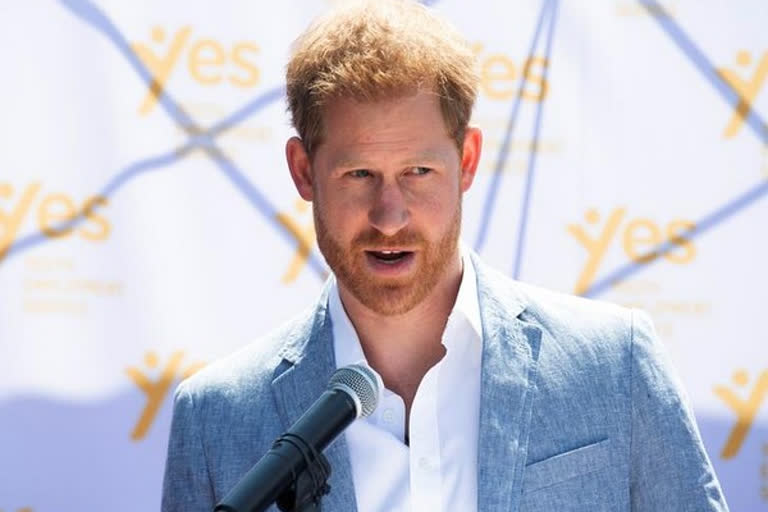Washington:Prince Harry volunteered to have his therapy session filmed for his new docuseries on mental health, 'The Me You Can't See', created in collaboration with American talk show host Oprah Winfrey.
As per People magazine, Dawn Porter, a director on Apple TV Plus' 'The Me You Can't See', addressed The Duke of Sussex's decision to show himself in a therapy session in the new mental health docuseries.
In a new interview with Town and Country magazine, Porter spoke about the decision behind Harry's emotional on-camera therapy, which is documented in the five-part docuseries that was co-created with Oprah Winfrey.
"Asif Kapadia was working really closely with Harry, and it was really interesting because we were working on the series for so long that we knew a lot about what Prince Harry was doing to maintain his mental wellness," said Porter, who co-directed the series with Kapadia.
Porter added, "And when you have Oprah Winfrey and the best advisers on the planet, you get access to a lot of the best research and the best medicine."
"Harry, he volunteered," she added of the Duke of Sussex.
She further said, "He was game for trying something. And we thought well, we have the opportunity to film this [therapy] and maybe this is something that will work for some people, maybe it won't, but the idea is that you don't tick a box and you're done, mental wellness is an ongoing pursuit."
Read:Emma Stone's daughter's birth certificate reveals her name
Porter shared, "You have to continue to try new things and to push yourself, and his volunteering to try something was a great way to emphasize and underscore that point."
In the docuseries, Harry openly talks about his upbringing in the royal family, how he takes after his late mother, Princess Diana, how he's changed as a person since becoming a father with his wife Meghan Markle, and how much he's grown stronger mentally after four years of working with his therapist.
According to Porter, both Harry and Oprah decided to helm the docuseries because of their "personal and deep feelings about destigmatizing conversations around mental health and mental wellness."
